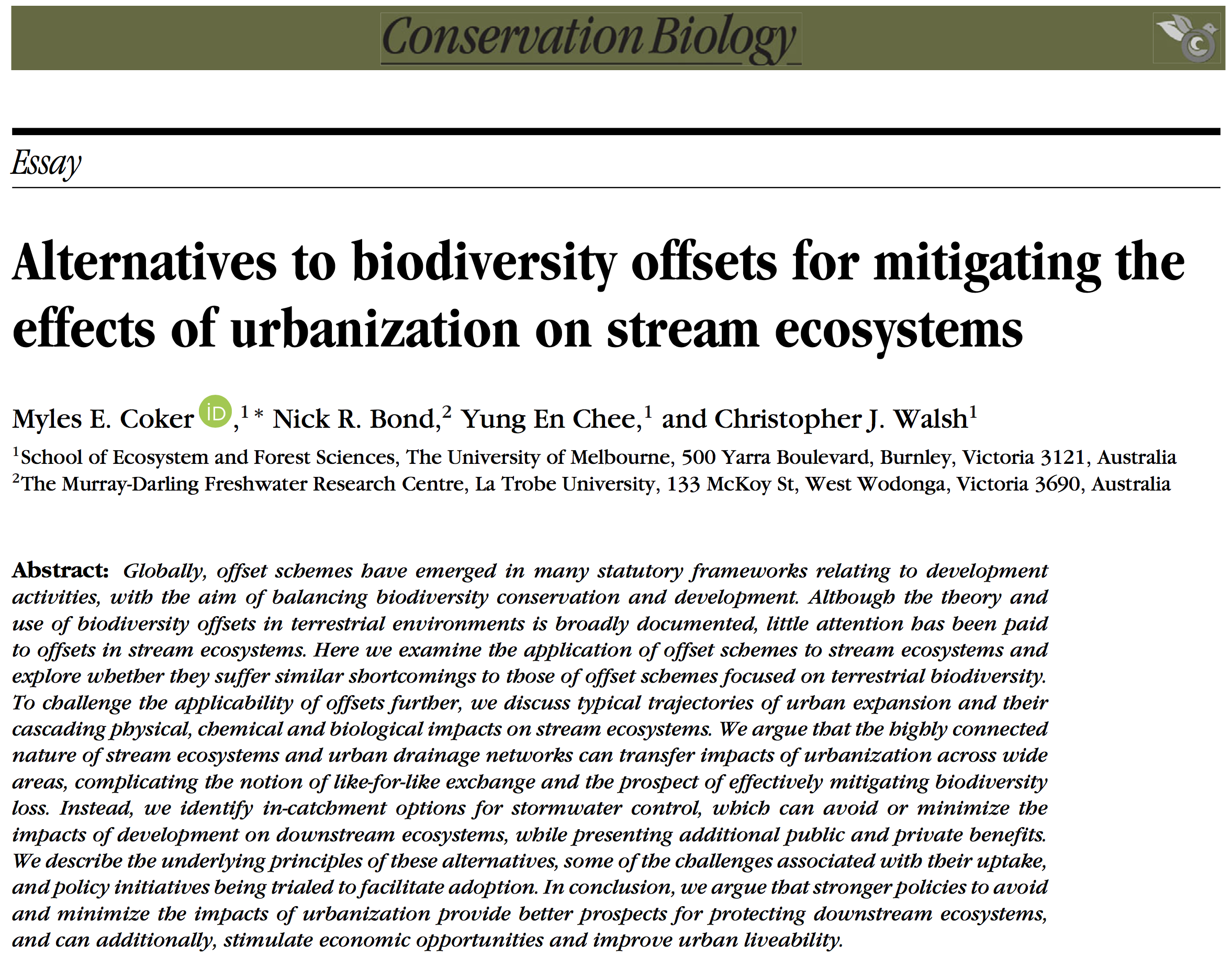 Biodiversity offsets are a popular policy tool to atone for the damage done by land development. Trouble is, they often don’t achieve their stated aims of ‘offsetting’ the development’s biodiversity losses with conservation gains elsewhere. The problem is amplified if the animals and plants you are trying to protect live in rivers and streams, which by their nature are highly connected with their catchments, and along stream lines. The problem is amplified again, if the development involves massively increasing that connectivity by draining it with stormwater drainage pipes.
Biodiversity offsets are a popular policy tool to atone for the damage done by land development. Trouble is, they often don’t achieve their stated aims of ‘offsetting’ the development’s biodiversity losses with conservation gains elsewhere. The problem is amplified if the animals and plants you are trying to protect live in rivers and streams, which by their nature are highly connected with their catchments, and along stream lines. The problem is amplified again, if the development involves massively increasing that connectivity by draining it with stormwater drainage pipes.
Myles Coker, Nick Bond, Yung En Chee and I have just had a paper published in Conservation Biology, in which we discuss this problem, concluding in the understated way typical of academic papers, that “biodiversity offsets poorly compensate for the impact of urbanization on streams”. More importantly, we outline opportunities for doing urbanization differently, so that much of the biodiversity losses we see in cities around the world can be avoided in the first place.
The paper is open-source, so you can read the full article here.



